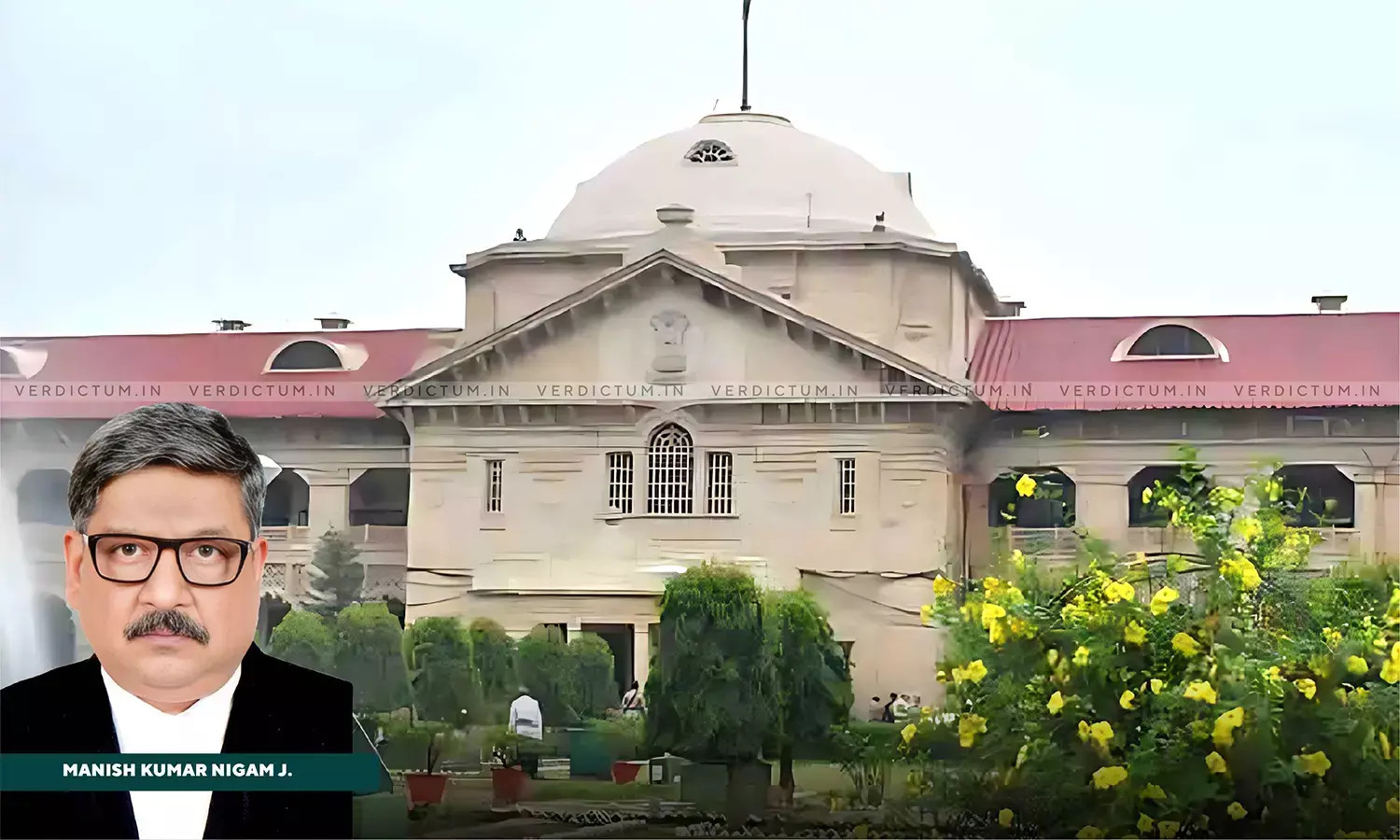Decision On One Ground U/S.13 Of Hindu Marriage Act Does Not Bar Second Divorce Petition Filed On Other Grounds: Allahabad High Court

The Allahabad High Court has held that the decision of a divorce petition under one ground mentioned in Section 13 of the Hindu Marriage Act, 1955, does not operate as res judicata for filing another petition on other grounds.
The High Court was hearing a petition filed under Article 227 of the Constitution challenging the order of a Principal Judge, Family Court, which had allowed an amendment to a pending divorce petition under Order VI Rule 17 of the Code of Civil Procedure, 1908 (CPC).
A Single Judge Bench comprising Justice Manish Kumar Nigam, while adjudicating the matter, observed, “Decision of a petition under Section 13 of the Hindu Marriage Act, 1955 on one ground will not operate as res judicata for filing divorce petition on other grounds as specified in Section 13 of the Hindu Marriage Act, 1955.”
Advocate Ram Bihari Mishra appeared for the petitioner, while Advocate Abu Sufiyan Azmi represented the respondent.
Background
The respondent-husband, on the grounds of cruelty and desertion, had instituted a divorce petition under Section 13 of the Hindu Marriage Act, 1955. After the framing of issues by the Family Court, the respondent sought an amendment in certain paragraphs of the plaint to include subsequent facts that allegedly came to his knowledge during the pendency of the case.
The petitioner-wife, however, opposed the amendment, arguing that it altered the cause of action by introducing new allegations and fresh grounds for divorce. It was further contended that the amendment application was barred by the proviso to Order VI Rule 17 CPC since it was filed after the commencement of the trial.
The Family Court, however, allowed the amendment application on the condition of payment of costs. Aggrieved, the petitioner approached the High Court.
Court’s Observations
The Allahabad High Court, while discussing the scope of Order VI Rule 17 CPC, observed that while the general rule restricts amendment after commencement of trial, an exception exists where “if some facts have come to the knowledge of the party to the suit subsequent to the commencement of trial, may be during the course of trial and if it is found that it is necessary for the purpose of determining the real questions in controversy between the parties, on a fair reading of Order VI Rule 17 CPC, such an application for amendment can be allowed even after the trial has commenced.”
While referring to Mohinder Kumar Mehra v. Roop Rani Mehra (2018), the Bench observed that in that matter, “the Supreme Court considering the facts of the case allowed the application for amendment as the same was filed before leading evidence by the plaintiff, despite the fact that the issues were framed and date was fixed for leading evidence by the plaintiff”, therefore reaffirming that “the trial commences when the date is fixed for leading evidence by the plaintiff”.
The Court further highlighted that to ensure judicial efficiency and to prevent repetitive litigation, “once the party is permitted to file a second petition even after dismissal of the first petition on a separate ground, there is no impediment in taking that ground by moving an application for amendment in the petition.” Permitting such an amendment, the Court observed, would not only avoid multiplicity of proceedings but also ensure that “all the disputes between the parties shall be considered and decided in one proceeding instead of filing successive separate petitions, in case the ground so exists.”
The High Court further observed that, in the matter at hand, the proposed amendments merely sought to include events that came to light after the filing of the original petition. Consequently, the Bench held that “it cannot be said that the plaintiff has tried to introduce a new ground or cause of action in his divorce petition” and that the proposed amendments were an elaboration of facts which came to the knowledge of the plaintiff-respondent during the pendency of the divorce petition.
Conclusion
The Allahabad High Court held that the Family Court committed no illegality in allowing the amendment sought by the respondent-husband, reaffirming that adjudication of a petition under Section 13 on one ground does not bar a subsequent petition on another ground.
Accordingly, the Court dismissed the petition as devoid of merit and directed the Family Court to decide the pending divorce proceedings expeditiously in accordance with law, without granting unnecessary adjournments, and keeping in view the mandate of Section 21-B of the Hindu Marriage Act, 1955.
Cause Title: ABC v. XYZ (Neutral Citation: 2025:AHC:169263)
Appearances
Petitioner: Advocates Ram Bihari Mishra and Vikas Upadhyay
Respondent: Advocate Abu Sufiyan Azmi


